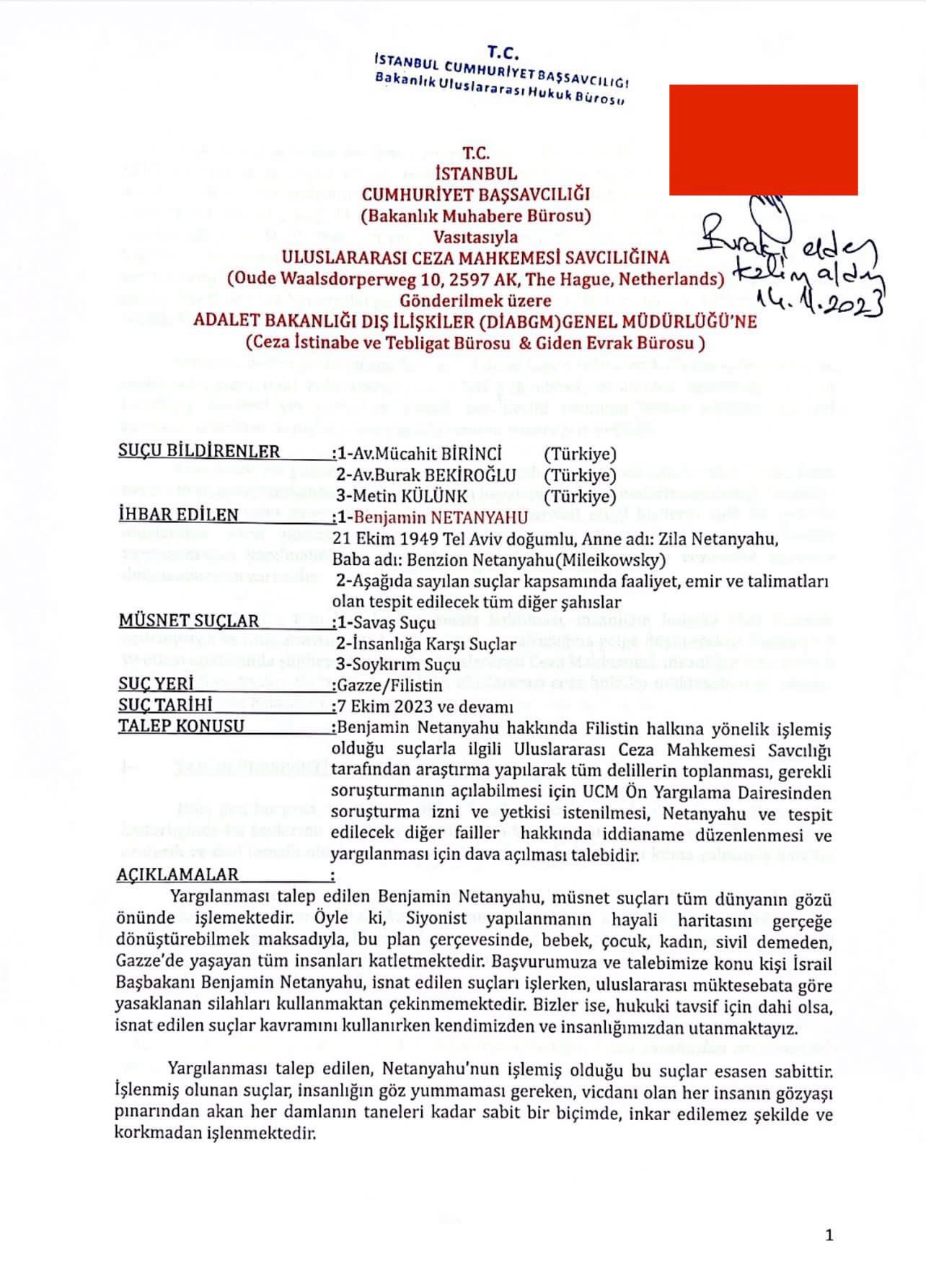According to recent reports, Turkey has commenced legal proceedings against Israeli Prime Minister Benjamin Netanyahu at the International Criminal Court (ICC), alleging his involvement in acts of “genocide” in the Gaza region. The case primarily focuses on Prime Minister Netanyahu, attributing to him the responsibility for alleged atrocities and crimes against humanity associated with the Israeli military’s operations in the Gaza Strip.
The allegation of genocide against Netanyahu arises from the military actions and aerial bombardments conducted by the Israeli armed forces in the Gaza Strip, specifically in the context of conflicts and hostilities involving Palestinian factions. Turkey, led by President Recep Tayyip Erdogan, has expressed strong condemnation of Israel’s conduct in the region. The Turkish government asserts that the Israeli government, including Prime Minister Netanyahu, should be held responsible for alleged war crimes.
The initiation of legal proceedings signifies a significant intensification of hostilities between Turkey and Israel, two countries that have encountered strained relations due to enduring matters, notably the Israeli-Palestinian conflict. Turkey’s decision to seek legal remedies through international channels such as the International Criminal Court (ICC) demonstrates a proactive approach in promoting responsibility and justice in relation to the situation in Gaza.
The legal action taken against Prime Minister Netanyahu highlights Turkey’s commitment to advocating for the rights of Palestinians and pursuing justice in response to what it regards as instances of human rights infringements and excessive use of force by the Israeli military in the Gaza Strip. The legal action undertaken by Turkey is consistent with its overarching foreign policy goals of advocating for the rights of Palestinians and contesting Israeli acts that are perceived as harmful to regional stability and peace initiatives.
Nevertheless, it is crucial to acknowledge that legal proceedings within international tribunals, such as the International Criminal Court (ICC), can be intricate and encounter many obstacles. These hurdles encompass matters of jurisdiction, diplomatic factors, and the onerous burden of evidence necessary to substantiate accusations of genocide or war crimes.
The legal action initiated by Turkey against Israeli Prime Minister Netanyahu is anticipated to garner significant attention and incite discussions pertaining to the legal and political ramifications associated with the Israeli-Palestinian conflict. Additionally, this may stimulate discourse regarding the involvement of international legal institutions in handling accusations of human rights violations and acts of violence within areas of armed conflict.
Considering the intricate historical dynamics and the sensitive nature of the Israeli-Palestinian conflict, the legal action initiated by Turkey against Prime Minister Netanyahu possesses the potential to yield significant ramifications. These consequences may manifest in the form of diplomatic repercussions between Turkey and Israel, as well as in shaping international perceptions regarding accountability.
It is of utmost importance to exercise patience in anticipation of subsequent developments and answers from Israel and international legal entities, such as the International Criminal Court (ICC), in order to determine the potential ramifications and consequences of Turkey’s legal action against Prime Minister Netanyahu. The progression of the case is anticipated to occur gradually, accompanied by ongoing debates and discussions concerning the legal foundation and practicability of pursuing such allegations within an international institution such as the ICC.
Follow us on social media: Instagram, Threads & Twitter X @nya360_ YouTube & Facebook @nya360.






